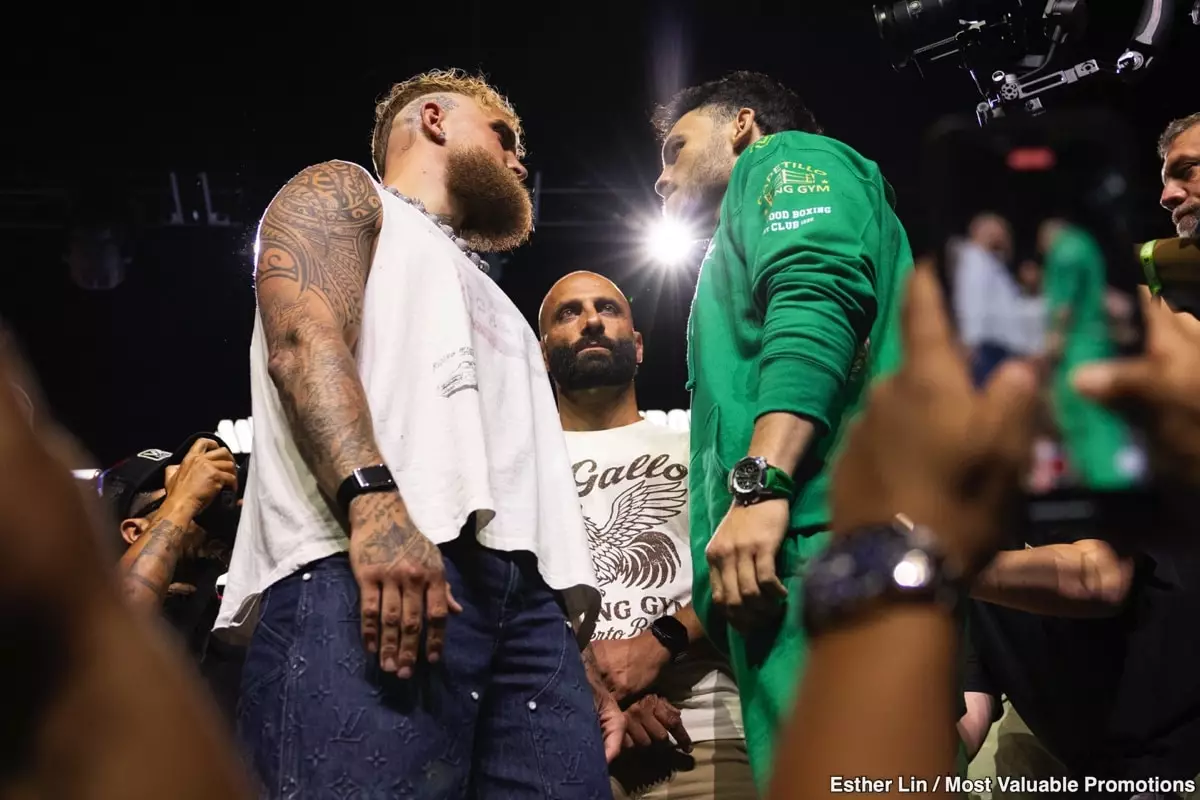Jake Paul’s entry into professional boxing in early 2020 was met with skepticism and, frankly, a fair share of ridicule. Here was a social media influencer, primarily known for antics and viral videos, stepping into one of the oldest and most demanding sports. Yet, five years later, it’s undeniable that Paul has carved out a significant, if polarizing, niche within boxing. His journey defies traditional expectations and challenges purists to reconsider what defines a legitimate boxing career. While detractors point to his matchup choices and sometimes theatrical approach, Paul’s impact on boxing’s popularity—particularly among younger audiences—is impressive.
Marketing Genius Meets the Combat World
One cannot discuss Jake Paul’s boxing trajectory without acknowledging his promotional savvy. Twice securing major fights on Netflix showcases not only his popularity but also a fresh approach to fight promotion, tapping into streaming platforms to reach wider audiences. These events, although occasionally criticized for lackluster in-ring action, have undeniably brought new eyes to the sport. Paul’s camp has been savvy in leveraging crossover appeal by matching him with aging MMA stars like Anderson Silva and Nate Diaz. This strategy was clever: it attracted MMA fans curious to see how their heroes would fare against a brash newcomer, often resulting in underdog MMA fighters being handed unexpected defeats. This tactic created buzz, even if it meant the fights lacked the pure boxing pedigree that hardcore fans might desire.
Challenges in Ring Legitimacy and Match Quality
The most substantial criticism of Jake Paul revolves around the level of competition he has faced. Beating MMA fighters past their prime, who often lacked the sharpness or boxing-specific skillset necessary to succeed against a focused pugilist, raised questions about the legitimacy of his victories. Fans and analysts alike were quick to discount his wins as mere flukes or spectacle rather than genuine sporting achievement. Paul’s loss to Tommy Fury, a young professional boxer from a renowned fighting family, highlighted the gap between novelty celebrity bouts and traditional boxing skill. That defeat punctured the myth that Paul was capable of competing at higher echelons of the sport, at least for now.
Facing Julio Cesar Chavez Jr.: The Aging Veteran’s Enigma
Paul’s upcoming matchup with Julio Cesar Chavez Jr. introduces a fascinating dynamic. Chavez Jr is a former world champion with elite boxing lineage, yet his career has been marred by inconsistency and lifestyle choices impacting his ring performance. At 39 and far past his prime, Chavez Jr appears to be a shadow of his former self. His recent victory over MMA fighter Uriah Hall was convincing but not emblematic of a peak performance standard. Conversely, his previous losses, including a split decision against Anderson Silva (another fighter not primarily a boxer), suggest a decline worth noting. Despite these factors, Chavez Jr’s experience and ring IQ could still pose serious challenges for Paul, especially if the younger fighter underestimates him or fails to fully prepare.
Betting Odds and What They Reflect About Perceptions
Oddsmakers have positioned Chavez Jr as a significant underdog (+425 to +475), reflecting skepticism about his ability to compete with Paul’s skill set and momentum. Meanwhile, Jake Paul is favored but primarily by decision or potentially by knockout, indicating a belief that the fight will be competitive but tilt in Paul’s favor. This betting landscape encapsulates the broader narrative: Paul is seen as the safer bet thanks to youth, recent form, and promotional backing, but Chavez remains a wild card capable of pulling off an upset if circumstances align. These odds encapsulate how much perception shapes expectations in modern boxing, especially in crossover fights.
The Broader Impact on Women’s Boxing and Fight Culture
Often overlooked in discussions about Jake Paul is his investment in women’s boxing as a promoter. By actively putting women athletes in the spotlight and incorporating their bouts into his events, Paul has contributed to increasing visibility for female fighters. This aspect deserves more attention because it signals an interest not merely in self-promotion but in fostering broader boxing engagement. However, the flip side remains that the hype around his fights sometimes overshadows serious boxing discourse, reducing the art to social media spectacle and clickbait.
Assessing Jake Paul’s Legacy: More Than a Passing Fad?
In evaluating Jake Paul’s influence, one must balance enthusiasm for his ability to pull audiences with the nuance of his impact on the sport’s integrity. His presence has undeniably boosted boxing’s profile, introducing the sport to demographics that might otherwise remain indifferent. Yet, the strategic matchmaking, reliance on MMA crossover opponents, and occasional questionable in-ring performances temper enthusiasm. Whether Jake Paul’s pursuit of boxing greatness evolves beyond promoter-driven spectacle into genuine competitive legitimacy remains an open question. The Chavez Jr fight represents a litmus test, revealing whether Paul’s trajectory is sustainable or simply a well-packaged flash in the pan.


Leave a Reply